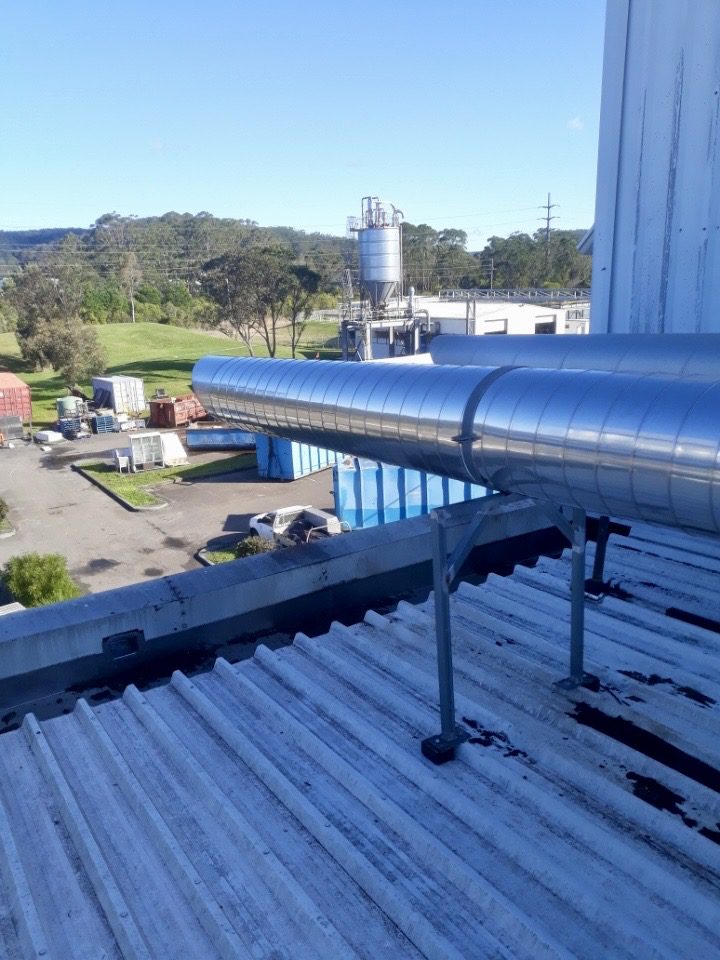Industrial insulation suppliers and installers since 1967
Need to reduce heat and noise transfer, bolster energy efficiency or ensure passive fire protection on your premises? Insulation Industries has you covered.
Industrial insulation materials, such as glass wool and rock wool, must endure heavy-duty applications while complying with strict safety standards. That’s why we equip large-scale operations with the most robust thermal and acoustic insulation solutions on the market.
From farms and manufacturing facilities to warehouses and transport centres, our insulation experts have worked on major industrial projects across Newcastle for over 50 years. Today, we partner directly with top brands like CSR Bradford to supply and install bulk product quantities at a cost-effective price.
Explore industrial insulation for process vessels, boilers, tanks, piping and more OEM applications online or call us today to arrange a custom solution for your site. Australia-wide delivery available.

Industrial insulation solutions
Roof and ceiling insulation
Roofs and ceilings play a vital role in your industrial building’s insulation, as they can be responsible for as much as 40% of heat transfer. Using sturdy insulation batts in these areas is key to maintaining stable indoor temperatures and avoiding moisture-related issues.
In Newcastle, industrial roof insulation should have an R-value of at least R5.0. Keep in mind that the higher the R-value, the more effective insulation will be.
Underfloor insulation
Around 20% of a building’s heat exchange happens through its floors. To keep a steady temperature and prevent drafts, underfloor insulation is crucial. In Newcastle, we recommend using underfloor insulation with at least an R2.0 or R2.5 rating for the best results.
This industrial thermal insulation suits existing spaces with a subfloor, as well as most new developments. However, some buildings, especially those constructed on a concrete slab with restricted access, may not be able to accommodate underfloor insulation.
Wall insulation
We advise investing in superior industrial wall insulation with a minimum R-value of R2.5, whether you’re refurbishing or constructing a new project. Introducing this additional thermal barrier between the interior of the building and the external environment can reduce heat transfer by up to 25%. Additionally, insulating the internal walls further boosts comfort and energy efficiency.
Acoustic insulation
Loud operations can affect both your workers and the wider community. Installing sound insulation helps reduce noise generated by industrial activities, from machinery to meetings. To enjoy more privacy and prevent disruption, we suggest installing R4.0 acoustic insulation for floors and R2.0 or R2.5 for walls.
HVAC insulation
A Heating, Ventilation and Air Conditioning (HVAC) system helps to maintain the optimum temperature and airflow inside your facility. To ensure it runs efficiently and cost-effectively, you’ll need to insulate its various components. HVAC insulation can be installed in both new and existing developments and is often required under building regulations. With our leading products, you can ensure compliance and comfort whilst minimising energy consumption.
Fire protection
Don’t let a fire harm your people, plant or profitability. With non-combustible materials, such as rock wool, foil and fibreglass, you can strengthen a facility’s passive fire protection. Fire-resistant insulation is engineered to endure high temperatures, slow the spread of a blaze and prevent the release of toxic smoke.
The advantages of industrial insulation
Newcastle’s go-to industrial insulation services
Be confident in the quality of your industrial insulation with streamlined supply and installation from local specialists.
With over five decades of expertise under our belts, no job is too big or small for our industrial insulation contractors.
We’ll implement any solution with unrivalled efficiency so that you can minimise downtime. That encompasses everything from removing old insulation to installing new batts in ceilings, roofs, walls and under floors – all tailored to your site’s unique requirements.

Frequently asked questions
Yes, we supply industrial insulation products in bulk quantities. Our team works directly with premium suppliers like CSR Bradford to equip you with all of the products required at the most affordable price. Explore our extensive range of insulation products online or at our store in Broadmeadow, Newcastle.
The Building Code of Australia (BCA) demands different R-values for industrial buildings’ insulation depending on their height and surrounding climate.
As well as BCA requirements, industrial insulation must abide by manufacturer specifications, state legislation and the AS/NZS 4859.1 – Materials for the thermal insulation of buildings.
At Insulation Industries, we have deep knowledge of insulation criteria for industrial buildings in Newcastle and Lake Macquarie. Call us today for tailored guidance.
The cost of industrial insulation varies according to the scope and requirements of your project. To receive a tailored quote and advice on selections, call our team today.
Insulation can be installed in industrial buildings during or after development, provided there is adequate access.
However, it’s usually best to install insulation as early as possible in the construction process. That way, you can fit the batts easily without any barriers. Plus, it helps protect structural components from harsh weather throughout the build.
If you would like to insulate an existing building as part of a renovation, we recommend adding wall insulation batts before the walls are lined. Otherwise, it may become more challenging and expensive to complete. When it comes to industrial ceiling and floor insulation, professional retrofitting is recommended.
To get started with our industrial insulation services, just give us a call. We’re always here to help!


